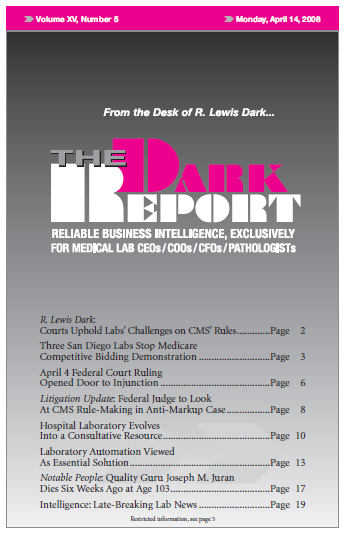CEO SUMMARY: Last Tuesday, a federal judge handed a big court victory to the three plaintiffs in their lawsuit seeking to delay or stop implementation of the Medicare Laboratory Competitive Bidding Demonstration pilot in the San Diego area. In his written opinion, the judge ruled in favor of the plaintiffs on three key points and …
Three San Diego Labs Stop Competitive Bid Demo Read More »
To access this post, you must purchase The Dark Report.


